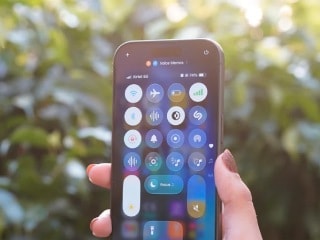- Home
- Mobiles
- Mobiles News
- Huawei's Chip Supply and Growth Affected by US Sanctions, Richard Yu Says
Huawei's Chip Supply and Growth Affected by US Sanctions, Richard Yu Says
The US has imposed various sanctions on Huawei, citing national security concerns.
In May, the US barred chipmakers that use US technology & software to design chips from selling to Huawei
A Huawei executive says that recent US sanctions against the company have caused a shortage of computer chips for the company, hurting the growth of its smartphone business.
Richard Yu, president of Huawei's consumer business, said at a company conference for developers on Thursday that the company has still managed to gain a 51 percent market share in the Chinese smartphone industry.
The US has imposed various sanctions on Huawei, citing national security concerns. The latest, ordered in August, restrict foreign semiconductor companies from selling chips to Huawei that are produced using American technology.
“Even after this third blow, we still managed to achieve growth,” said Yu, who acknowledged that growth had been impacted over the last month.
In May, the US barred chipmakers that use US technology and software to design chips from selling to the Shenzhen-based company without a license.
A year earlier, the US government put the company on its trade blacklist, banning Huawei from doing business with US companies after the Trump administration said Huawei was a national security threat.
The US alleges that Huawei could conduct intelligence for the Chinese government and has urged its allies to exclude Huawei from its telecommunications networks. Huawei has vehemently denied these accusations.
This trade blacklist cut Huawei off from suppliers such as Google, which had supplied Huawei smartphones with the Android operating system and Google Mobile Services, such as Gmail and YouTube. Huawei then developed its own Huawei Mobile Services, including an app store, that it has rolled out for newer smartphone models.
Despite the troubles with Washington, in 2019 Huawei shipped over 240 million phones globally, and was the second biggest smartphone maker in the world. In the first half of 2020, the company generated revenues of CNY 434 billion (roughly Rs. 466,104 crores), up 13.1 percent from the same period a year earlier.
Yu said the company plans to make its proprietary operating system HarmonyOS available to devices including its smartphones, some of which still operate on the Android system. Earlier, the company had said HarmonyOS was meant for devices such as smartwatches and TVs, among others.
Is Android One holding back Nokia smartphones in India? We discussed this on Orbital, our weekly technology podcast, which you can subscribe to via Apple Podcasts, Google Podcasts, or RSS, download the episode, or just hit the play button below.
Get your daily dose of tech news, reviews, and insights, in under 80 characters on Gadgets 360 Turbo. Connect with fellow tech lovers on our Forum. Follow us on X, Facebook, WhatsApp, Threads and Google News for instant updates. Catch all the action on our YouTube channel.
Related Stories
- Samsung Galaxy Unpacked 2026
- iPhone 17 Pro Max
- ChatGPT
- iOS 26
- Laptop Under 50000
- Smartwatch Under 10000
- Apple Vision Pro
- Oneplus 12
- OnePlus Nord CE 3 Lite 5G
- iPhone 13
- Xiaomi 14 Pro
- Oppo Find N3
- Tecno Spark Go (2023)
- Realme V30
- Best Phones Under 25000
- Samsung Galaxy S24 Series
- Cryptocurrency
- iQoo 12
- Samsung Galaxy S24 Ultra
- Giottus
- Samsung Galaxy Z Flip 5
- Apple 'Scary Fast'
- Housefull 5
- GoPro Hero 12 Black Review
- Invincible Season 2
- JioGlass
- HD Ready TV
- Latest Mobile Phones
- Compare Phones
- Lava Bold N2
- Vivo V60 Lite 4G
- Tecno Pova Curve 2 5G
- Lava Yuva Star 3
- Honor X6d
- OPPO K14x 5G
- Samsung Galaxy F70e 5G
- iQOO 15 Ultra
- Asus Vivobook 16 (M1605NAQ)
- Asus Vivobook 15 (2026)
- Brave Ark 2-in-1
- Black Shark Gaming Tablet
- boAt Chrome Iris
- HMD Watch P1
- Haier H5E Series
- Acerpure Nitro Z Series 100-inch QLED TV
- Asus ROG Ally
- Nintendo Switch Lite
- Haier 1.6 Ton 5 Star Inverter Split AC (HSU19G-MZAID5BN-INV)
- Haier 1.6 Ton 5 Star Inverter Split AC (HSU19G-MZAIM5BN-INV)







![[Partner Content] OPPO Reno15 Series: AI Portrait Camera, Popout and First Compact Reno](https://www.gadgets360.com/static/mobile/images/spacer.png)









